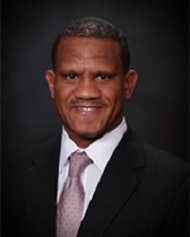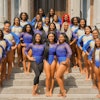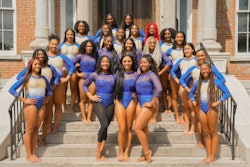After the NFL announced Wednesday that its players on the field must stand respectfully for the national anthem or face fines – or remain in locker rooms until the anthem is over — two questions linger: Can the NFL legally require its players to stand? Do the players have any viable legal recourse?
The answers depend on who you ask.
 Dr. Alvin Tillery
Dr. Alvin Tillery“It is truly an open question whether the NFL’s rule is legal,” said Dr. Alvin Tillery, an associate professor of political science and director of the Center for the Study of Diversity and Democracy at Northwestern University.
“Under standard interpretations of the First Amendment, workers do not have an absolute right to engage in protest speech at work,” explained Tillery, whose research focuses on American political development, racial and ethnic politics and media and politics.
“On the other side of the coin, it seems pretty clear that what the NFL is trying to do here is compel patriotic speech from its workers. That is really testable in a court of law. It is also questionable because NFL games take place in publicly funded stadiums. So there is a real argument that teams, as private-public entities, must respect the First Amendment.”
President Donald Trump’s public spat with kneeling NFL players over the kneeling issue has been well documented. At a political rally in September in Huntsville, Ala., he called kneeling players “sons of bitches” and suggested that perhaps owners should fire them.
In an interview that aired Thursday on “Fox and Friends” on the Fox News channel, Trump said the NFL was “doing the right thing.”
“I don’t think people should be staying in the locker rooms,” Trump said, “but still I think it’s good. You have to stand proudly for the national anthem or you shouldn’t be playing, you shouldn’t be there. Maybe you shouldn’t be in the country.”
 Colin Kaepernick
Colin KaepernickVice President Mike Pence tweeted #winning with a screen shot of a story on the NFL’s new policy after it was announced Wednesday. That prompted renowned attorney Mark Geragos, who is representing quarterback Colin Kaepernick and unsigned safety Eric Reid in their collusion cases against the NFL, to respond Thursday with a “winning” tweet of his own that included a Cornell Law School link to case law stating that it is unlawful for government officials to influence a private entity’s employment decisions.
Kaepernick is considered the centerpiece of the kneeling controversy, which began when he knelt during the national anthem when his San Francisco 49ers faced the Green Bay Packers in a preseason game Aug. 26, 2016. At the time, Kaepernick said he was protesting police brutality against Black people and social inequality.
Soon, other NFL players, most of whom were Black, began to follow Kaepernick’s lead. More joined the protests as Trump and others amped up criticism.
Since opting out of his contract with the 49ers in March 2017 ahead of his imminent release, Kaepernick has remained unsigned – hence, his collusion case.
Though the NFL’s latest decision this week may be legal, it’s unjust, contended Dr. Peter Edelman, the Carmack Waterhouse Professor of Law and Public Policy at the Georgetown University Law Center, where he teaches constitutional law and poverty law and is faculty director of the Georgetown Center on Poverty and Inequality.
“This is a country that supports the right to have freedom of speech,” said Edelman, who has worked in all three branches of the federal government. “When the football players put down a knee, it was about very, very important issues in our country. They were exercising their right to free speech.”
Edelman added that he is “very sorry about what happened to Colin Kaepernick. He was treated unfairly by the league.”
The NFL described the new rule this way: “The policy subjects teams to a fine if a player or any other team personnel do not show respect for the anthem. That includes any attempt to sit or kneel, as dozens of players have done during the past two seasons to protest racial inequality and police brutality. Those teams also will have the option to fine any team personnel, including players, for the infraction.”
 Dr. Nicholas Pearce
Dr. Nicholas PearceIn announcing it, NFL commissioner Roger Goodell said: “The efforts by many of our players sparked awareness and action around issues of social justice that must be addressed. The platform that we have created together is certainly unique in professional sports and quite likely in American business. We are honored to work with our players to drive progress.
“It was unfortunate that on-field protests created a false perception among many that thousands of NFL players were unpatriotic. This is not and was never the case.
“This season, all league and team personnel shall stand and show respect for the flag and the anthem. Personnel who choose not to stand for the anthem may stay in the locker room until after the anthem has been performed.
“We believe today’s decision will keep our focus on the game and the extraordinary athletes who play it — and on our fans who enjoy it.”
Since the controversy began, television viewership of NFL games has dropped, fueled by angry people on both sides of the debate. Game attendance overall also has declined, combining with decreased viewership to lower the league’s and team owners’ revenue.
According to ESPN, the policy will be part of the NFL’s game operations manual and therefore not subject to collective bargaining. The NFL Players Association said in a statement that it will review the policy and “challenge any aspect” it deems inconsistent with the collective bargaining agreement.
Some important details remained unclear, including the specific fine that teams would be subject to and how the league specifically defines respect for the flag. For example, what if player is standing during the anthem and raises a clenched fist or turns his back to the flag or field?
The new policy is bullying by team owners and Trump, contends Dr. Nicholas Pearce, a clinical associate professor of management and organization at Northwestern University’s Kellogg School of Management.
“By adopting their new national anthem policy, the NFL owners have unanimously signaled that they are more deeply influenced by Donald Trump’s bullying than by the life-and-death existential concerns held by many of their own employees and the communities within which the teams operate. Though this has been twisted into a debate about patriotism, the players’ protests were never about the national anthem or the flag itself — the focus has always been on the disproportionate and state-sanctioned terrorizing of Black men in America.”
The Rev. Al Sharpton’s National Action Network announced a rally and news conference Friday to support the players’ right to protest on the field. The event is scheduled for 11 a.m. at the NFL’s headquarters on Park Avenue in New York.
Sharpton’s organization will call on NFL owners to rescind the new policy, arguing that it violates the players’ First Amendment rights.
 Dr. Peter Edelman
Dr. Peter EdelmanPearce identified a potential legal loophole.
“The NFL will punish teams whose players do not stand,” he said, “but the teams can choose whether they punish individual players themselves. The NFL Players Association could have legal recourse because they could argue that the NFL unilaterally changed a workplace rule for a unionized workplace. At the end of the day, the players can still protest. There are just consequences for the teams and possible consequences for the players” on a per team basis.
The NFL and the Players Coalition recently reached an agreement on a $90-million social justice partnership. The seven-year deal was slated to fund local and national social projects considered important to Black communities.
“I do think that they (players) should go to court, but I don’t think that they will,” said Tillery. “They are an incredibly weak union, and I don’t see them trying to get stronger over symbolic politics. Moreover, the fact that they weren’t even unified on the wrongful exclusion of Kaepernick pretty much signaled to the owners that they could get away with this.”
Super Bowl champion defensive back Malcolm Jenkins of the Philadelphia Eagles is a key leader of the Players Coalition. When the social-justice partnership was reached with NFL owners, he said it was “insulting” when some critics called him “a sellout.”
Jenkins said many NFL players “have spent time in cities and towns talking with these people about these issues and pushing these legislators to right these wrongs. What we’ve learned is that this is not a Democrat or a Republican issue. It’s an American issue — and an American problem. That is why we are moving forward with our efforts in the Coalition, to drive forward initiatives, campaigns and advocacy efforts to force legislators to make this a priority.”
After Wednesday’s announcement by the NFL, Jenkins said in a statement:
“While I disagree with this decision, I will not let it silence me or stop me from fighting. The national conversation around race in America that NFL players forced over the past two years will persist as we continue to use our voices, our time and our money to create a more fair and just criminal justice system, end police brutality and foster better educational and economic opportunities for communities of color and those struggling in this country.
 Dr. Robert Cottrol
Dr. Robert Cottrol“For me, this has never been about taking a knee, raising a fist or anyone’s patriotism but doing what we can to effect real change for real people. #thefightcontinues.”
Chris Long, a defensive lineman and outspoken player for the Eagles, demonstrated his displeasure with the league’s decision with a pointed Tweet: “This is fear of a diminished bottom line. It’s also fear of a president turning his base against a corporation. This is not patriotism. Don’t get it confused. These owners don’t love America more than the players demonstrating and taking real action to improve it. It also lets you, the fan, know where our league stands.
“I will continue to be committed to affecting change with my platform. I’m someone who’s always looked at the anthem as a declaration of ideals, including the right to peaceful protest. Our league continues to fall short on this issue.”
Another point of contention is that there appears to have been no prior discussion with the players about the new rule.
“It will be interesting to see how the Players’ Association will react. What is really amazing about the move is that it was made with no consultation with the players,” said James Druckman, the Payson S. Wild Professor in political science at Northwestern and associate director of the university’s Institute for Policy Research.
Maurice Smith, executive director of the NFL Players Association, said in a statement: “The sad irony of this rule is that anyone who wants to express their patriotism is subject to the whim of a person who calls himself an ‘owner.’ I know that not all of the NFL CEOs are for this and I know that true American patriots are not cheering today.”
New York Jets chairman Christopher Johnson announced that Jets players are free to continue protesting and that he will pay any fines they incur.
“I do not like imposing any club-specific rules,” he told Newsday. “If somebody (on the Jets) takes a knee, that fine will be borne by the organization, by me, not the players. I never want to put restrictions on the speech of our players. Do I prefer that they stand? Of course. But I understand if they felt the need to protest. There are some big, complicated issues that we’re all struggling with, and our players are on the front lines. I don’t want to come down on them like a ton of bricks, and I won’t. There will be no club fines or suspensions or any sort of repercussions. If the team gets fined, that’s just something I’ll have to bear.”
Meanwhile, the legal debate is likely to continue.
“If you are looking for a constitutional angle here, I don’t see a constitutional angle,” said Dr. Robert Cottrol, a historian, sociologist and the Harold Paul Green Research Professor of Law at George Washington University.
“The Bill of Rights says the government cannot take X,Y or Z from you. This is a private institution – the NFL. It’s not the government. It seems a private organization has the right to say an employee has to behave in a certain way as a condition of employment. To me, the NFL is saying, ‘We are a public presentation, and require our employees to behave in a certain manner.’’’
Asked what he would do if NFL players asked him to represent them in court, Cottrol demurred.
“I would tell them, ‘You very likely don’t have a case. Sorry, I don’t see a legal remedy here.’
“I would advise them that they’re likely to lose, so save your money.”
He would have better news for team owners.
“I would say, ‘You have a very good case in defending this.’”



















